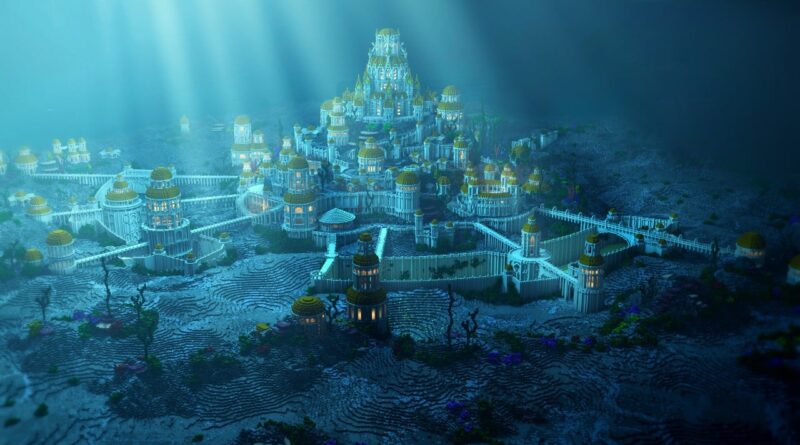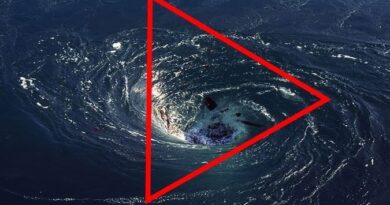The true story of the legendary lost city of Atlantis: Unknown things about it revealed
In 360 BC, Plato wrote that Atlantis was once a powerful civilization; However, according to him, ‘when the island became porous and proud, the gods sent earthquakes to destroy the island nation’. So where is Atlantis? What is the story of Atlantis? Does it really exist or was it a myth?

The legend of Atlantis, a sophisticated island civilization said to be buried deep in the ocean, has intrigued scientists and enthusiasts for thousands of years. Based on Plato’s dialogues, the story of Atlantis has evolved from a philosophical allegory into a serious subject of archaeological and historical research and debate.
Despite its legendary origins, the quest to locate the lost city of Atlantis has led to numerous theories and expeditions around the world. From the depths of the Atlantic Ocean to the Mediterranean and beyond, scientists and archaeologists have used advanced technologies to scour the Earth for clues that might shed light on this ancient mystery.
Although the evidence is scarce, this has not stopped many people from asserting their belief that the legendary civilization actually existed. But why?
To answer this question, it is important to understand where the legend of Atlantis comes from and how it has been transmitted throughout history.
How did the story of Atlantis begin?
The first mention of Atlantis in ancient texts comes from the dialogues Timaeus and Critias, written by the Greek philosopher Plato around 360 BC. In these writings, Atlantis serves as an allegory, a cautionary tale, about how hubris destroyed the world’s greatest civilization.
Plato wrote in Timaeus that Egyptian priests spoke to an Athenian statesman named Solon. According to Plato, priests told Solon about 9000 years ago about a large island located beyond what was once called the Pillars of Hercules or the Strait of Gibraltar.
As the story goes, Atlantis was once a sprawling empire ruled by a powerful confederation of half-god, half-human kings. These kings conquered most of the Mediterranean, but were quickly defeated when they tried to conquer Athens.
Plato said that this attempt caused the Atlanteans to fall out of favor with the gods. As punishment for their lack of faith, their kingdom collapsed and the island in its center was swallowed by the ocean.
“But then there were violent earthquakes and floods; and in one unfortunate day and night, all your warrior men sank en masse to the earth, and the island of Atlantis was likewise lost in the depths of the sea,” wrote Plato in the Timaeus, and continued:
““Therefore the sea in these parts is impassable and impassable, because there is a swarm of mud in the way; “This was caused by the collapse of the island.”

Most historians agree that Plato used the story of the lost city of Atlantis as a cautionary tale, a completely fabricated allegory showing how easily a utopian society could fall from grace.
Considering that the philosopher’s writings about Atlantis are the only complete ancient record of the island kingdom’s existence, it is fair to assume that they are indeed fiction.
So why do discussions about the existence of Atlantis continue today?
Things written about Atlantis in History
The Hellenistic Jewish philosopher Philo briefly mentioned Atlantis and Plato in the early first century. Philo did not dwell on this issue and in his work On the Eternity of the World, he only stated that Atlantis was destroyed.
References to Atlantis also appeared in some early Christian texts, and debate arose as to whether it actually existed. While some scientists denied the existence of Atlantis, others argued that it was real and that pagans were responsible for its collapse.
However, interest in Atlantis arose much later.
The theory that Atlantis was the American continent

Around the 16th century, scientists began making serious attempts to truly describe Atlantis. For example, Francisco Lopez de Gomara theorized that the lost city of Atlantis actually referred to America. Francis Bacon and Alexander von Humboldt later came to the same conclusion; Bacon even wrote an unfinished novel called New Atlantis.
Others, however, took Plato’s statement more literally, believing that Atlantis was once a small continent in the middle of the Atlantic Ocean.
Either way, scholarly interest in Atlantis was reignited as European nations continued to spread their influence westward. When they came into contact with Native Americans, particularly Mayan and Aztec populations, some scholars began to suggest that these people descended from Atlantean citizens.
How was the story of Atlantis popularized?

It was fringe scientist and former US Congressman Ignatius Loyola Donnelly who popularized the story of Atlantis into the modern era.
In 1882 he published Atlantis: The Antediluvian World, in which he repeated the same ideas that Le Plongeon and Brasseur de Bourbourg had written several decades earlier. Neither a historian nor a scientist, Donnelly claimed that he could trace the roots of all civilizations to Atlantis, which he believed was a highly advanced culture.
Donnelly argued that the similarities between the Mayans, Aztecs, Egyptians, and ancient Greeks point to a common cultural history, starting with Atlantis. But perhaps the most important point Donnelly made to popularize his ideas was to introduce the idea that the Garden of Eden was located in Atlantis and that the civilization was destroyed in the biblical Great Flood.
Donnelly’s pseudo-historical writings were convincing enough for the time, which is undoubtedly why the Atlantis myth still exists today. Moreover, linking these “foreign” ancient civilizations to Christianity also bridged the cultural gap between the Old World and the New World.
What do people think about the lost city of Atlantis today?





